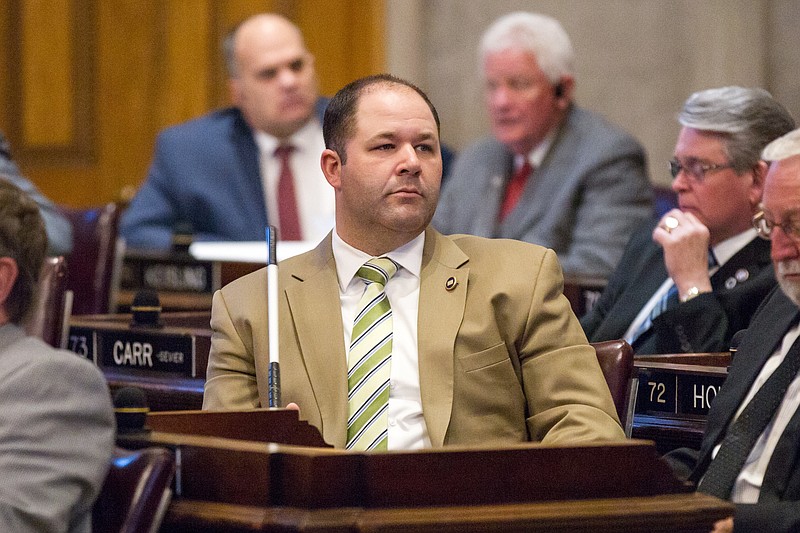NASHVILLE -- Legislation requiring Tennessee voters to register by political party moved through a House panel today by voice vote with debate showing divisions among Republican members.
Introduced at the request of the Tennessee Republican Party's State Executive Committee, the legislation would end a long state tradition of having "partially open" Democratic and Republican party primaries.
For decades, that has allowed voters, including independents, to cast their ballots in either party primary although legally they're supposed to "affiliate" with that party and if they haven't can be challenged and even prosecuted.
That almost never happens though. If the bill passes, voters would be required to register by party and primary elections would be restricted to those voters. The general election would remain open to all voters.
But the bill would end a rich tradition in the state that a number of Republicans, including the state's new governor, Bill Lee, and his immediate predecessor Bill Haslam don't want to end. A number of top legislative Republicans also argue that it helped transform Tennessee from a Democratic-dominated state into one where the GOP now occupies the governor's mansion, both U.S. Senate seats, seven of nine congressional seats and super majorities in the state House and Senate.
Elections & Campaign Finance Subcommittee Chairman Tim Rudd, R-Murfreesboro, said the General Assembly can accede to the state GOP's request, noting that courts have ruled parties are "private political organizations and can't be controlled by the state. We just grant them access to the ballot box."
Rudd said while lawmakers can deny the GOP's request, the party's executive committee can simply go back to meeting as a caucus or holding a party convention to select their nominees.
The Tennessee Democratic Party doesn't support the bill.
Rep. John Crawford, R-Kingsport, said, "I just have one question: How do I go back to my people that I represent in the 1st District and tell them, that for all the people who have fought and died for the right to vote, how can I limit them? How can I explain to them that I'm limiting them on who they can vote for?"
Bill sponsor Rep. Andy Holt, R-Dredsden, said state law "already directs, on an honor system basis, that in essence that members of parties vote within the primary of the party with which they are associated."
While critics of the bill charge his bill is "instituting a Class D felony, that's incorrect," Holt said. "That's in the law right now." The bill "doesn't do anything in essence that's not currently in the law" other than "designating a registration" by party for unaffiliated Democrats, Republicans and independents, Holt added.
Independent voters could register as independents, thereby excluding them from either party primary, or select a party. All voters would could change their registered affiliations, but it would have to be well before a primary.
Rep. Yusuf Hakeem, D-Chattanooga, said "if we were to implement this at the will of one party as opposed to both asking for this, I mean, it's like a degree of suppression. I may be overstating it."
Rudd said closing primaries "secures the authority of the party so no one can infringe on their rights because right now independents can vote in either Democrat or Republican primaries and influence their elections."
Unimpressed, Hakeem said "it appears taking the rights of citizens because they have not designated themselves as a Democrat or a Republican." As Rudd argued all voters can vote for any candidate in the general election, the Chattanooga lawmaker replied, "I hear you sir, chairman, but we're saying that legally any person cannot or should not in a primary unless they're designated."
Rep. Mike Carter, R-Ooltewah, said the bill "has nothing to do with the general election."
The lawmaker went on to cite the case of then-Sen. Rosalind Kurita of Clarksville in her 2008 Democratic primary as a genuine instance of voter disenfranchisement.
Kurita, who in 2007 helped elect the first Republican Senate speaker since Reconstruction, won her contested 2008 Democratic primary by 19 votes. Her primary opponent contested that, arguing Republicans had crossed over to help her. A convention of party officials in her district held a convention and voted to strip Kurita of the nomination.
"They put a losing person" on the general election ballot, Carter noted. "Is that disenfranchising those voters? Absolutely."
Contact Andy Sher at asher@timesfreepress.com or 615-255-0550. Follow on Twitter @AndySher1.
